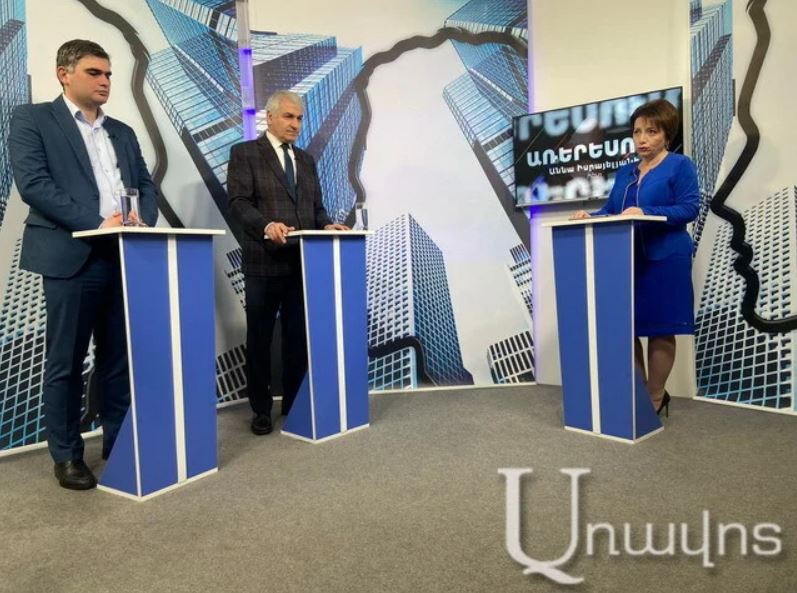Russia is our main trade partner. It is in first place both in terms of import and export. It is predicted that the sanctions against Russia will affect the Armenian economy by slowing down economic growth, rising prices, and reducing remittances. And one of the negative expectations is that Armenia is facing the challenge of food security.
The Swedish Handelsbanken Bank will suspend financial transactions with Georgia and Armenia from March 21.
“We see a high risk of transit transfers to countries under sanctions,” the bank said. The Swedish bank fears that remittances to Georgia and Armenia may be redirected to countries under sanctions, including Russia. It is obvious that within the framework of the economic war, the two sides will try to harm each other as much as possible, and they will close the “windows” or “corridors” that will allow them to mitigate the consequences of that war. ”
Armenia is one of those opportunities,” said Suren Parsyan, the head of the ARF Bureau’s economic research office and a guest on Aravot’s “Areresum (Confrontation)” program. According to him, “If the volumes increase, not only that Swedish bank, but also other banks will follow that example. Fortunately, the Armenian banking system does not have a problem with foreign payments at the moment,” said Martin Galstyan, Chair of the Central Bank of Armenia.
Read also
The other guest of the “Areresum” program, the chair of the Republican Union of Employers Gagik Makaryan, predicts that there will be no “collapse of the banking system” or serious problems. The main bank of the Republic of Armenia has become more pessimistic. According to the forecasts published on March 15, 2022, economic growth in Armenia will reach 1.6%, while at the end of the previous year, 5.3% growth was forecasted. According to Suren Parsyan, the Central Bank is even still optimistic.
And Gagik Makaryan mentioned that the Central Bank sees the rhythm at which the government operates. “The agenda of the government does not change significantly, it does not seem to have an agenda for overcoming challenges.” According to him, if they do not change that agenda, they will continue with the same rhythm: “Naturally, in this force majeure situation we can have significant losses of economic activity and economic growth, GDP growth.” Suren Parsyan tried to support the government. “The Central Bank is making the government’s situation even worse.”
This assertion was based on the fact that at the March 15 sitting, the Board of the Central Bank of Armenia decided to increase the refinancing rate by 1.25 percentage points, setting it at 9.25%. “The government should ensure economic growth and collect taxes, but the Central Bank is not interested in that. It is interested in its number one goal – price stability.”
According to Gagik Makaryan, “Economic and social problems in our country often interfere with each other. The social burden constantly depends on the tail of the economy. Now the question arises: was it better for us to aggravate the social problems or to alleviate the social problems but allow the economy to suffer? In this balance and mentality, the government and the Central Bank needed to come to a compromise; either they did or they did not. They do not have a plan of anti-crisis measures, it is obvious.
The economic bloc of the government is generally separated from the monetary policy; they solve current issues independently of the state management. But global economic policy is simply absent in our country, and this also leads to these crisis situations,” said the head of the ARF Bureau’s Economic Research Office. “In this crisis situation, their apathy and weakness is very obvious.”
The opinion of the chair of the Republican Union of Employers is that in this situation the state should not leave employers alone. “As the program of 24 measures for overcoming the coronavirus was launched, here too there must be a program of measures with a separate package.” According to him, the government must carry out new functions that overcome the challenges.
Anna ISRAELYAN




























































